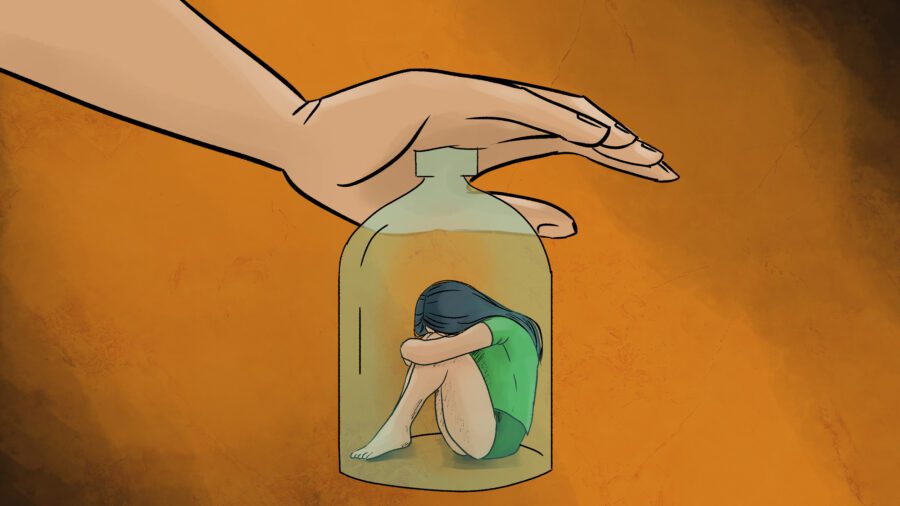
How to Navigate the Highs & Lows of Relationships, According to Dr. Esther Perel
Romantic relationships are incredibly rewarding, to say the least.
Although there’s certainly nothing wrong with being single, there’s something extraordinary about falling in love and committing oneself to another person. Still, romantic relationships aren’t always fun and easy — they inevitably come with tough moments and challenging periods.
Fortunately, you can learn how to best approach the highs and lows of your relationship through Dr. Esther Perel’s teachings.
Dr. Esther Perel is a Belgian psychotherapist who serves as an organizational consultant for companies worldwide. She’s published multiple books on navigating relationships and finding the perfect partner, The State of Affairs: Rethinking Infidelity, and Mating in Captivity: Unlocking Erotic Intelligence, and she also hosts the podcasts Where Should We Begin? and How’s Work?.
In this article, we walk you through some of Dr. Esther Perel’s invaluable relationship advice for improving your communication with your partner, readjusting unrealistic expectations, and reigniting the spark in your relationship. Let’s dive in!
What if My Relationship Is Exhausting Me?
Before we go over what you can do to strengthen your relationship with your partner, it’s helpful to know the main reasons why relationships become draining and ultimately fail. Here are some of the most common challenges couples face:
Poor Communication
As you move past the honeymoon stage of your relationship, one of the most common challenges is maintaining healthy communication. This can result from a variety of reasons, including becoming too busy, too conflict avoidant, and too stressed.
Have you ever found yourself primarily communicating with your partner only to discuss your schedule or to-do list? This is a common problem with couples who have lived together for a long time or have kids. Your communication can become primarily about the logistics of your life rather than romantic and interesting.
Once communication breaks down, many relationship problems can occur. You may have difficulty expressing your needs or be unaware of your partner’s unmet needs.
Additionally, you may have underlying conflicts within your relationship that you need to address, but the breakdown in healthy communication makes it feel impossible to address those challenges. A lack of communication can cause numerous relationship struggles, such as feeling unfulfilled, infidelity, and losing confidence in your partner.
Struggle for Intimacy
One common symptom of poor communication in a relationship is a lack of sex and intimacy. Different forms of physical interactions — such as sex, kissing, and cuddling — produce a hormone called oxytocin. This hormone has been found to increase feelings of satisfaction and reduce stress.
When a couple struggles to maintain physical intimacy, they may feel less of an emotional connection with one another. Studies also find that sex plays a vital role in maintaining a long-term relationship and is an important part of an individual’s physical and emotional health.
Of course, intimacy is not ONLY about a physical connection — you can also feel intimate with your partner through your emotional connection. But if you struggle to communicate effectively and lack physical intimacy, your relationship can become challenging.
Lack of Respect
What do you think is the most common reason relationships end? Believe it or not, the answer is NOT infidelity.
According to expert psychologist Dr. John Gottman and Dr. Esther Perel, contempt is the number one relationship killer. Dr. Gottman specializes in divorce probability, and he stated that contempt is the highest predictor of divorce.
Dr. Perel teaches that contempt is a common reason couples break up because it makes us feel worthless. Have you ever experienced someone mocking or showing a general disdain toward you? It’s a painful experience, and receiving such disrespect from your partner can make you feel like you’re nothing.
Sadly, this practice is incredibly common. People put down their significant others to feel superior, ultimately leading to the relationship ending or becoming toxic.
Losing Trust in Your Partner
Trust is one of the most critical parts of a relationship, and it’s impossible to maintain a healthy partnership without trusting one another. Two of the main ways in which someone may lose trust in their partner are lying and infidelity.
If you ever find that your partner lied to you about something — whether it be related to your finances, home life, or other relationships — it can be incredibly challenging to trust them in the future. Even if you try to continue trusting them, you may have reflexive doubts about their honesty and integrity.
Of course, one of the main topics people lie about within a relationship is cheating. Even if you don’t explicitly lie and say, “I’ve never had an affair,” engaging in infidelity of any kind is still a breach of trust if you’re exclusive with your partner.
Although it’s not impossible to regain trust in your partner, it can be a challenging hurdle for your relationship.
Addressing the Challenges in Your Relationship
These different relationship problems can seem daunting and insurmountable, but just because you have issues doesn’t mean you need to give up making it work with your significant other. You can work through the different hurdles to create a lasting bond.
Fortunately, Dr. Ester Perel has shared a great deal of expert relationship advice through the years to help you navigate the lows of your relationship.

The Greatness Mindset
Learn the secrets of some of the greatest minds in the world. Unlock the power of your mind and live your best life today.
Learn MoreDon’t Stay in a Toxic Relationship
One quick note we want to share is that you may not always want to make it work with your significant other, and that’s okay.
This is especially critical to remember if you’re currently in a toxic relationship, meaning that your partner is emotionally or physically abusive or always puts their own needs over yours. Some of the signs that you’re in a toxic relationship include:
- Gaslighting, which is a form of psychological abuse in which the abuser manipulates their partner to believe themselves to be incorrect, confused, or insane
- Pathological lying or manipulation
- Jealousy and possessiveness
- Refusing to communicate and show empathy toward you
- Economic abuse, meaning they manage your finances in order to maintain control over you
Although ending a relationship is challenging, it’s usually necessary if you’re involved with a toxic individual. Toxic people put their own needs over their partners’ needs, and that lack of compromise — not to mention the increased likelihood of emotional, economic, or physical abuse — makes it impossible to have a healthy relationship. If you’re involved with a toxic person who’s incapable or unwilling to change, it’s time to move on.
Shifting Your Relationship Expectations
One fundamental way that a couple can begin repairing their relationship or navigate hard times is by recalibrating their expectations. Dr. Esther Perel teaches that we often put too much pressure on our romantic partners and have unrealistic expectations for them. We expect a lover, best friend, co-parent, advisor, and more roles, and people usually can’t fulfill all of these different needs all of the time.
People’s expectations are so high that it’s nearly impossible to find someone who can meet their unrealistic criteria long-term. When you or your partner no longer fulfill the different expectations, it can cause tension and discord.
Consider lowering your expectations for your partner. Remember, they’re ONLY human, and they make mistakes — just like you. If you put them on a pedestal and expect them to always meet your needs and make you happy, they’re sure to fail.
Additionally, ensure you don’t put too much pressure on your partner to fulfill all the different roles you need in your life. For example, don’t expect your partner to always be there at a moment’s notice to listen to your problems or be your buddy. You should have other people in your life who you can talk to and feel comfortable with socially.
Finally, when shifting your expectations, don’t ONLY focus on the challenges in your relationship or the mistakes your partner makes. Again, you and your partner are only human, so remember the good things that your partner does and the positive parts of your relationship.
It takes a great deal of empathy to make any relationship work, so be patient with both yourself and your partner and adjust unrealistic expectations.
Improving Communication and Developing Reflective Listening Skills
Good communication is the cornerstone of a positive relationship, and one critical skill you and your partner need to learn in order to communicate better is reflective listening.
Improving your ability to listen and understand your partner is invaluable for addressing disagreements and challenges within your relationship, and reflective listening can help you form a stronger connection with your partner.
Reflective listening is a two-step process that involves asking the speaker questions to better understand what they’re saying and then offering a response to confirm that you understand.
For example, if your partner expresses that they feel you’re emotionally unavailable, you might ask questions to understand what they mean exactly. You might ask, “What does it mean for you to be emotionally available?” in a way that sounds genuine rather than combative.
Once they answer, you would then respond, “Okay, what I’m hearing is this,” and you paraphrase the idea back to your partner in order to show them that you truly understand what they’re saying. If your partner then feels that you don’t fully understand what they’re saying yet, they might express the idea in a different way, and you would continue responding in order to comprehend what they’re telling you.
Another critical way you can improve your listening skills with your partner is by avoiding thinking of a rebuttal while they speak. Have you ever noticed that when someone says something you disagree with, you formulate your response in your head without trying to fully understand their perspective?
You might hear what they have to say, but you’re not actually LISTENING to them.
Remember, relationships are NOT a competition. Don’t try to one-up your partner by winning the argument. Forget about your pride, and genuinely listen to what they have to say.
Join In 200 Million+ On The Journey to Greatness
Reigniting Emotional Intensity With Your Partner
Perhaps the most common challenge for long-term relationships is maintaining the spark you and your partner initially had.
This doesn’t always mean that you’re having relationship problems — according to Dr. Esther Perel, this is a normal biological effect of long-term relationships. Men’s desire for their significant other naturally reduces over time, and women begin to lose the desire for their partner once romance and seduction are no longer present in the relationship.
Fortunately, just because you’ve lost some of your initial spark with your partner doesn’t mean you can’t regain it.
Why People Cheat
It’s no mystery that cheating is an incredibly common relationship killer, but it doesn’t always need to be. Even if your partner makes a mistake and is unfaithful, you can address the underlying problems that led to the infidelity and grow in your partnership.
Dr. Esther Perel teaches that the underlying cause of cheating doesn’t always have to do with the desire for sex — people have affairs because they lack something in their lives. She teaches that people can still love their partners and engage in an affair because they may feel a longing for an emotional connection, and they also may engage in an affair in order to regain a lost sense of self.
Infidelity is often a symptom of a stagnant relationship. When we’ve been with the same partner for an extended period, we no longer feel the same sense of excitement, and we no longer put forth an effort to be interesting or romantic with our partners.
Bringing Excitement Back into Your Relationship
Whether you and your partner are working through relationship problems or want to reignite the spark that brought you together, you can use Dr. Esther Perel’s teachings.
One way to bring more excitement into your partnership is by introducing novelty. Explore new things together and engage in new activities. This could mean taking on a new hobby together or trying something new in the bedroom.
Ultimately, rediscovering the romance and seduction in your relationship means being willing to listen to your partner and perhaps compromise. Dr. Esther Perel teaches that some people lean toward being takers/consumers while others are more natural givers. Sometimes to reignite your relationship’s spark, you need to be more of a taker or more of a giver.
For example, if you’re more inclined toward giving, maybe you have an easy time being emotionally available to your partner, but you find it challenging to express your own needs.
When it comes to bringing more excitement to your relationship, the key is — once again — effective communication. You and your partner need to be on the same page about bringing more romance into your partnership, and if you feel that your relationship lacks excitement, the first step you need to take is communicating that feeling with your partner.
Are You Wondering, “Should I Stay or Should Go?” Check Out These Helpful Resources from Dr. Esther Perel
Navigating relationships can be challenging, especially if you’ve been with your partner for a long time. Fortunately, Dr. Esther Perel offers many resources that can help you improve your ability to connect with your significant other. We recommend you check out her blog, which is full of other helpful relationship guidance.
Remember, ALL relationships have their rocky moments. Just because you’re having problems with your partner DOES NOT mean you can’t make it work. Learn from Dr. Esther Perel’s teachings and bring more excitement and better communication into your relationship.
Greatness Authors
Greatness Authors is a collection of writers, thinkers, curiosity experts, and students of the world who are committed to bringing you the most up-to-date, impactful, and inspiring information surrounding Greatness topics.

How to Have a Healthy Romantic Relationship Even if You Share Different Beliefs

13 Tips to Help a Parent Transition into Assisted Living with Care & Respect

Take Your Power Back: 9 Subtle Signs Your Partner Is Gaslighting You

Apologizing 101: How to Apologize from the Heart & Mend Your Mistakes Without People Pleasing

The Ultimate Guide to Finding “the One,” According to Relationship Expert Stephan Speaks










